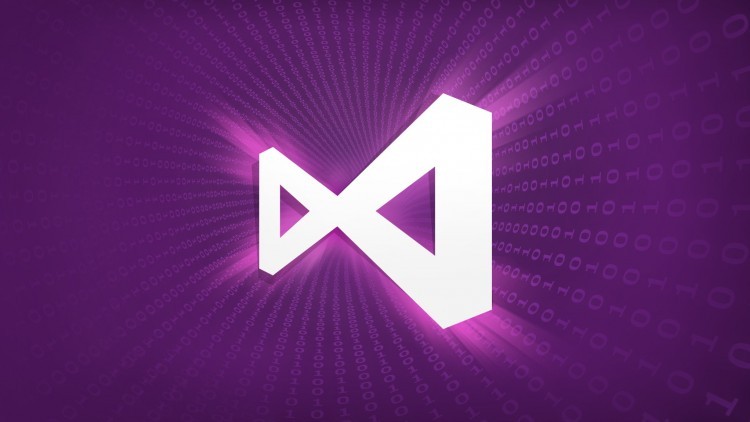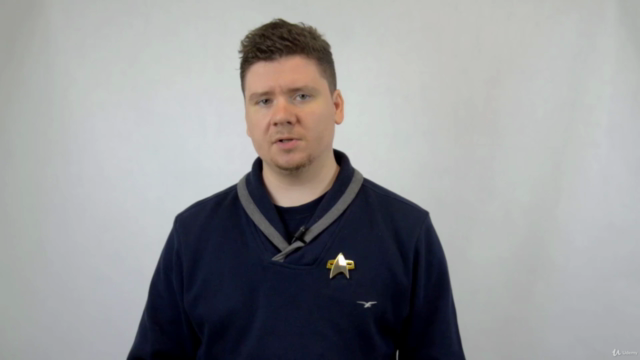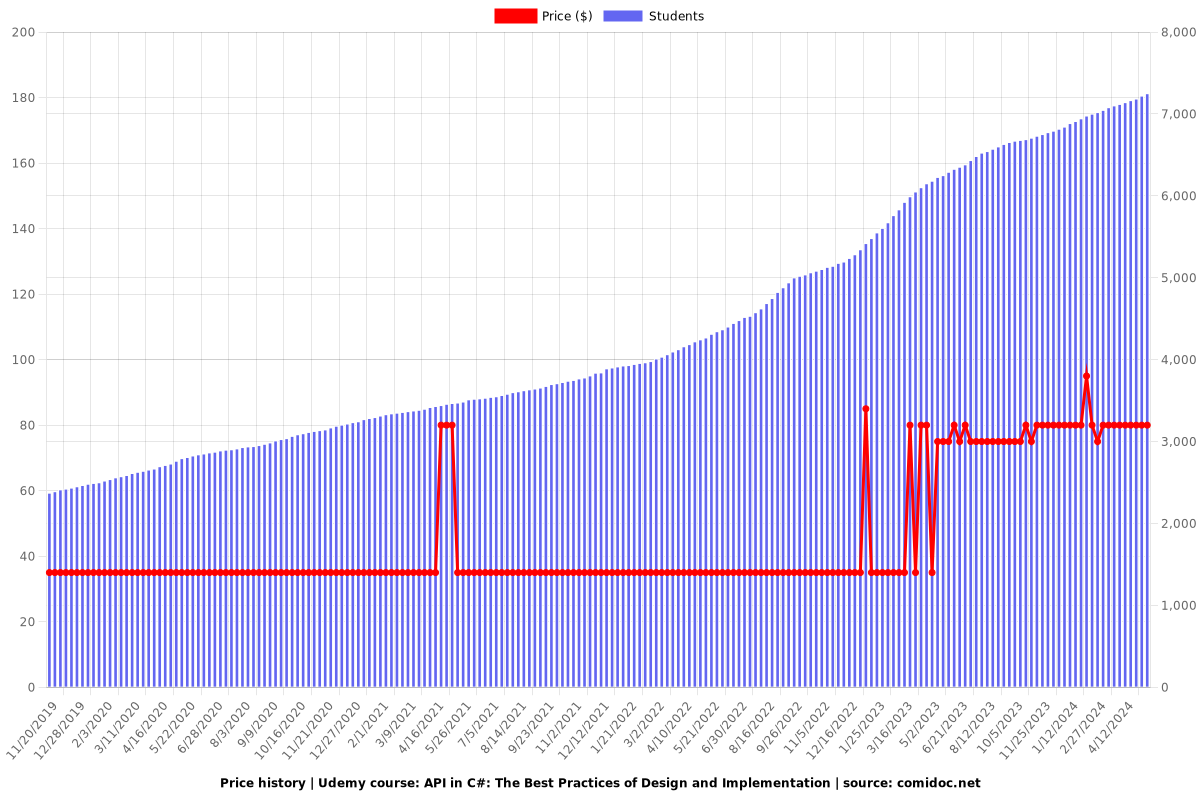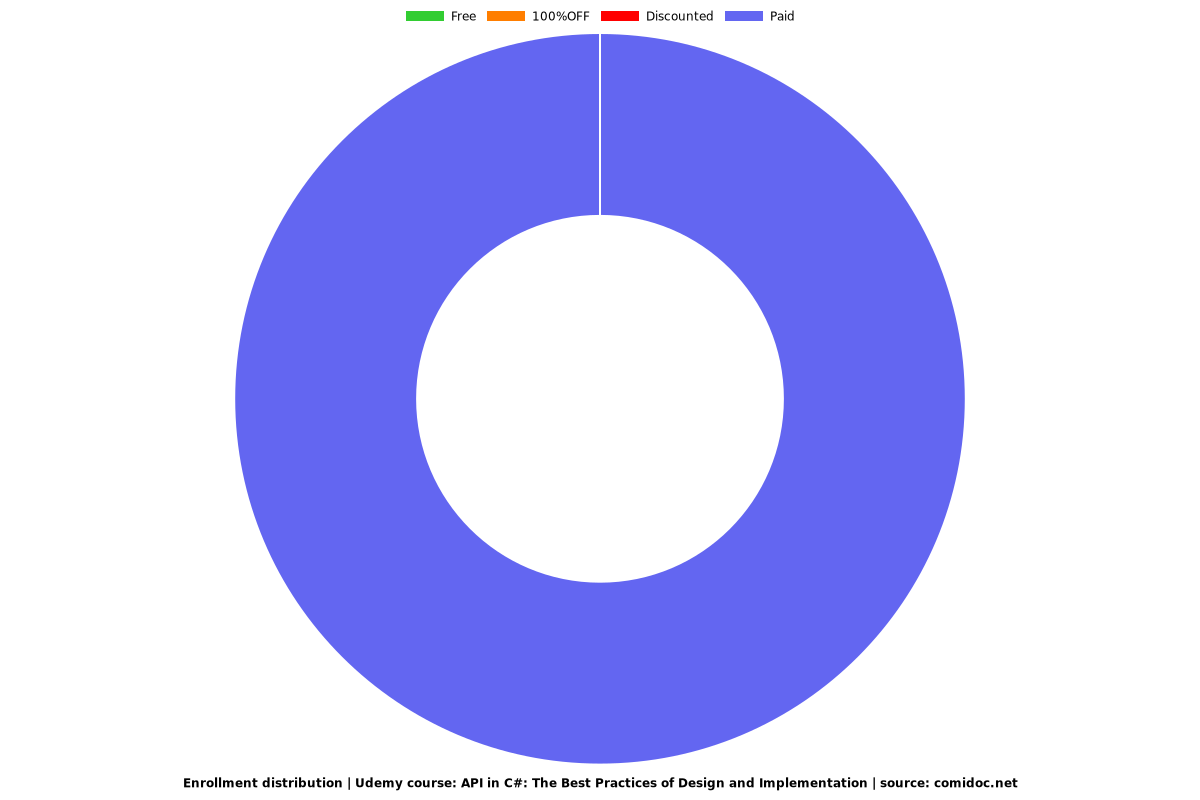API in C#: The Best Practices of Design and Implementation
Learn how to write clean code in C#. Design and implement API based on the best practices developed by .NET community.

What you will learn
Design and implement a type or an API taking care of it's users.
Encapsulate types so the other programmers would not hate you.
Code in a good style making the code clearer in its intent.
Refactor the code making it much better to read and understand.
Throw and handle exceptions properly.
Decide whether to comment a particular part of the code is a good idea or not. By the way, which comments are helpful and which are not?
Dealing with Null values
Why take this course?
Learn how to design and implement types in C# so that the other developers won't hate you when using one of the types developed by you. It means you are going to learn how to write code of the high quality: readable, understandable and reliable.
Improve your knowledge in object-oriented programming in the context of clean coding and building types of high quality.
Understand the characteristics of a well-designed type
Grasp the principles of the convenient API development
Write clean code, get rid of unpleasant smells
Learn about what exceptions are intended for and how to throw and catch them properly
Protect your types from the incorrect usage making them properly encapsulated.
Foundations of building object-oriented infrastructures
Despite the fact that C# is a very rich on features language, it's very common to see poorly designed and implemented types in a real world. In fact, C# is one of the richest on features language among object-oriented languages in the world nowadays. But with great power comes great responsibility. It's challenging to use all those features in a right way.
You probably have already heard the following well-known statement: most code sucks. Well, this course is all about how to produce code which doesn't suck.
Owning skills of producing a well-designed and well-implemented types is the prerequisite for the other developers to treat you as a real professional.
Content and Overview
This course is aimed at all the C# developers, from beginners to seniors. Topics which are covered in the course are relevant for all kinds of C# developers since all developers design and implement APIs. The topics complexity is very different. There are plenty of very simple topics, and at the same time, there are topics which require from you a solid C# background. There are plenty of code examples throughout this course, so you will learn both theoretical and practical material.
Starting with characteristics and principles of a well-designed type you will go further, learning how to give names for different members, how many parameters a method should take, is it a good idea to take a Boolean as a parameter of a method and much more than that.
Then you will learn what encapsulation really means. How to encapsulate a type? There are some trade-offs we will deal with encapsulating our types. There are many experienced programmers who don't know what encapsulation is in essence. Investigating this topic together we will see how to build a consistent and reliable type.
After mastering the topic of types encapsulating you will face the great problem of exceptions handling. Yep, it's a hard nut to crack. We will start from discussing a question of why do we use exceptions as a mechanism of errors handling. And why C# team didn't invent any other mechanisms?
In the end, we will look at how to fight with null values. As you may know, Tony Hoar said that the invention of a null value was his billion-dollar mistake.
To sum up, the course covers the following topics:
API development principles
How to give better names for API members and what naming conventions exist in the .NET platform and suited for C#.
Common problems encountered by C# developers in the process of designing and implementing APIs: classes vs structures, abstract classes vs interfaces, creational patterns vs constructors, how to implement dispose pattern (are you sure you understand this allegedly simple case?)
Common implementation smells such as poor naming, excessively long methods, output parameters and so on.
Common Architectural Design Smells such as Primitive Obsession, Hidden Dependencies, Violation of Law of Demeter and other.
How to deal with errors. It is surprisingly hard to develop robust software where errors handling is based on exceptions. We will find out why this is so and how to struggle with problems of error handling.
How to deal with Nulls. Null Vales have always been a pain the ass. NullReferenceException is a well-known and popular guest in our software. We will look at the possible ways of diminishing the disrupting power of null-values.
Teaching Approach
No fluff, no ranting, no beating the air. I esteem your time. The course material is succinct, yet comprehensive. All important concepts are covered. Particularly important topics are covered in-depth. For absolute beginners I offer my help on Skype absolutely free, if requested. Don't forget that this course has English subtitles, so if you don't understand my accent, feel free to turn them on.
Take this course and you will be satisfied.
------------------------------------------------------------
Keywords related to the course:
C# Clean Code
C# Best Practices
API in C#
Building API in C#
Clean Code in C# tutorial
Refactoring
Screenshots




Reviews
Charts
Price

Rating

Enrollment distribution
